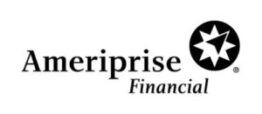
David Randall Lockey, of Dallas, Texas, a stockbroker formerly registered with SWS Financial Services, Inc., was fined $10,000.00 and suspended for six months from associating with any Financial Industry Regulatory Authority (FINRA) member, ordered to provide restitution of $5,329.75, and disgorged of $46,447.38 per a FINRA Order Accepting Offer of Settlement containing findings that Lockey effected unsuitable switches and short-term trades in customer accounts, and falsified customer account documents. Department of Enforcement v. David Randall Lockey, No. 2013034954001 (Oct. 7, 2016).
According to the Order, between May of 2012 and March of 2014, during which time Lockey was registered with SWS Financial Services, he utilized an investment strategy with four of his firm’s customers which consisted of short-term switches and trades in unit investment trusts as well as open-end mutual funds. In two customer cases, Lockey reportedly effected unsuitable switches and trades in closed-end mutual funds.
The Order stated that the affected customers held accounts with Lockey at his prior employer. Subsequent to Lockey’s termination at his prior employer and eventual registration with SWS, customers transferred their assets to SWS accordingly. Apparently, the customers’ investment objectives consisted of longer term capital appreciation or income, or combination of both.
By customers investing in the unit investment trusts and mutual funds recommended by Lockey, they were purportedly subject to significantly high transaction based fees. FINRA stated in the Order that the investments Lockey recommended were designed for longer term investing so as to mitigate the higher upfront costs borne by investors. FINRA found that Lockey made investment recommendations to customers that were based upon shorter holding periods.
The Order stated that thirty-seven trades in unit investment trusts and open-end mutual funds were effected by Lockey, where customers held the investments for shorter than a year. Additionally, Lockey reportedly effected a total of twenty-three closed-end fund transactions in two of his customer’s accounts. According to the Order, Lockey effected such trades despite his strategy not conforming to the investment objectives of the customers. FINRA held that Lockey’s strategy caused his customers to pay commissions which were unwarranted.
FINRA further indicated that Lockey’s trading activity included the switching of closed end funds, open-end mutual funds, and unit investment trusts, where proceeds from the sale of such investments were utilized to purchase other closed end funds, open-end mutual funds, and unit investment trusts. This approach, according to FINRA, deprived customers of practically all economic value.
The Order further reported that two of the firm’s customers were victims of Lockey’s repeated purchases and sales of the same investment. FINRA determined that this approach caused customers to recognize a diminutive benefit, if any benefit was recognized at all. The Order stated that the trading strategy implemented by Lockey in four customer accounts allowed Lockey and his firm to accumulate $68,641.26 in compensation. Three of the four customers suffered investment losses of $5,329.75 in the aggregate, and one customer generated a minor gain.
Particularly, Lockey made recommendations to a retired sixty-seven-year-old individual, HD, whose objectives of investing primarily consisted of growth, and with a second objective of generating income. Lockey purportedly liquidated HD’s open-end mutual funds and unit investment trust holdings despite such investments having been held for under a year, and then traded open-end mutual funds and unit investment trusts on a short term basis. Additionally, the Order stated that Lockey effected trades on a short term basis, in which he purchased and sold identical closed end funds in HD’s account on at least three different occasions. HD apparently suffered from $20,602.90 in trading losses due to Lockey’s antics.
In sum, HD’s account was subject to thirty-four trades such to Lockey’s unsuitable investment recommendations. HD apparently suffered from $20,602.90 in trading losses. Yet, Lockey and his firm reportedly grossed $35,153.45 in compensation in connection with such trades.
The Order also stated that Lockey made recommendations to customer, SB, whose objectives of investing primarily consisted of income, and whose secondary objective was growth. Lockey apparently traded unit investment trusts, open-end mutual funds, and closed-end funds in SB’s account on a short term basis. Like the case with HD, Lockey seemingly purchased and sold identical securities in SB’s account. The Order stated that sixteen trades in SB’s accounts were effected by Lockey in an unsuitable manner. SB reportedly suffered from $2,634.57 in trading losses, while Lockey reportedly grossed $19,215.83 in compensation through effecting such transactions.
The Order further stated that Lockey effected eleven short-term trades in the account of customer DT, whose objectives of investing primarily called for growth, and whose secondary objectives called for income. Lockey’s short-term trading transactions, which FINRA deemed unsuitable, led DT to bear $3,453.00 in trading losses, while Lockey apparently earned $5,565.37 in compensation resulting from transacting in DT’s account.
The Order additionally stated that Lockey made unsuitable recommendations to customer, LH, who had investment objectives of growth. The Order stated that Lockey’s short term trades in LH’s account led LH to suffer $242.18 in trading losses, even though Lockey generated $1,842.48 in profits in connection with such.
FINRA indicated that Lockey’s switching and short-term trading was unsuitable for customers because of the type of such products that he utilized. Additionally, FINRA found that Lockey lacked an appropriate basis for concluding that such recommendations were actually suitable for such customers in light of the rate in which transactions were effected, the overall nature of such transactions, and Lockey’s knowledge concerning the investment objectives of the affected customers. FINRA found that Lockey’s conduct in this regard was violative of FINRA Rule 2010, 2111, and NASD Conduct Rule 2310.
The Order further stated that while Lockey was registered with SWS, he made false statements in the switch forms associated with the aforementioned customers. The Order stated that the firm required a Long Term Investment Exchange Acknowledgement and Authorization Form to be completed when investors switched certain investment products to others. Such forms, according to the Order, were designed to protect customers from switching longer term investments on a short term basis.
Apparently, five of the forms were completed by Lockey in which Lockey indicated on such forms that the customers purchased securities on inaccurate dates, creating the effect of making it seem as though the affected customers’ investments were held for longer periods so as to warrant switching. FINRA found that Lockey’s conduct of falsifying these switch forms was violative of FINRA Rules 2010 and 4511.
The Order stated that on March 28, 2014, Lockey was terminated by SWS based upon allegations of his unsuitable short-term trading activity in customer accounts. FINRA’s Public Disclosure reveals that Lockey’s prior firm, Edward Jones, terminated him on March 7, 2012, based upon allegations against Lockey of making recommendations for investors to trade long term investments on a short term basis, and failing to cooperate in internal compliance reviews regarding his trading.
The information contained herein has been obtained from reliable sources however may not be accurate and is not guaranteed by us. Readers are encouraged to undertake their own independent investigation and evaluation of the relevant facts. All claims and allegations are subject to adjudication, decisions may be subject to appeal, and no inference is intended, nor should any inference be made from any information contained herein from any source.
This posting and the information on our website is for general information purposes only. This content should be not considered legal advice, and any responses, comments, e-mails, other communications do not form any attorney client relationship. Attorney Advertisement. See Important Disclaimer
Guiliano Law Group
Our practice is limited to the representation of investors. We accept representation on a contingent fee basis, meaning there is no cost to you unless we make a recovery for you. There is never any charge for a consultation or an evaluation of your claim. For more information, contact us at (877) SEC-ATTY.
For more information concerning common claims against stockbrokers and investment professionals, please visit us at securitiesarbitrations.com
To learn more about FINRA Securities Arbitration, and the legal process, please visit us at securitiesarbitrations.com








